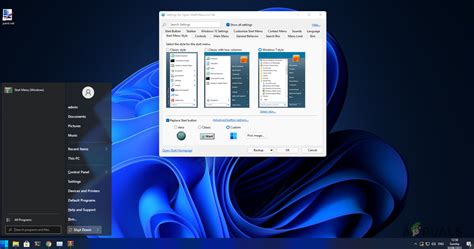In a digital era where user interface (UI) trends swiftly evolve, there’s a substantial user base that yearns for the classic Windows experience— a sentiment strongly catered to by Open-Shell. Originally designed to bring classic Start menu ideologies to newer Windows versions, Open-Shell goes beyond mere aesthetics; it embodies a resistance against the wave of ever-changing UI paradigms that often displace familiarity with a ‘modern’ look. This desire for a familiar operational environment isn’t just about resisting change but about maintaining efficiency and comfort in daily computer interactions.
The user comments from the Open-Shell GitHub page illuminate diverse utilities that enhance Windows operations profoundly. Users discuss integrating tools like Notepad3, XYPlorer, and various system utilities, demonstrating a broader community effort to preserve and improve the functionality of Windows systems amid changing times. The discussion extends to alternatives like Notepad++ and other text editors, which shows a wide range of preferences and requirements that Open-Shell users consider when customizing their systems.
The discussion around system utilities does not end with just text editors. Tools like ‘Everything’ for advanced file searching and ‘foobar2000’ for media management are highlighted, showing how Open-Shell users are deeply integrated into optimizing their workflow and system management. These tools often replace less efficient native applications, providing powerful functionality that aligns with the needs of power users. This highlights a community that not only appreciates the aesthetics of the past but also demands the efficiency and capability of modern software.
Open-Shell’s widespread utility speaks to a significant audience unwilling to let go of the ‘classic’ Windows interface, which many find more intuitive and less cluttered compared to newer versions. The evolving discussion over XML and JSON in UI development, spawned by Windows updates, further showcases the technical depth of the Open-Shell user community. These technical preferences aren’t just nostalgic; they represent thoughtful considerations on usability and system performance that challenge even Microsoft’s latest UI innovations.
The spirited interaction in the Open-Shell community around customizing Windows systems contrasts starkly with the often closed ecosystems found in modern OS versions, which are increasingly locking down system customization in the name of security and uniformity. This push towards a more rigid operating environment by major companies like Microsoft has met resistance from a community that values flexibility and the ability to tailor an operating system to fit individual needs and preferences.
Engagement with Open-Shell and similar tools highlights a broader philosophical debate about the direction of operating system development. Should systems be locked down to offer a streamlined, uniform experience that prioritizes security over personalization? Or should they allow individual users the freedom to tweak and change the system to their liking, potentially at the risk of security and efficiency? The preference for a tool like Open-Shell suggests that many users are on the side of personalization, willing to take greater control of their digital environments.
Finally, the future of Open-Shell and tools of its ilk may be uncertain as Windows continues to evolve and possibly close off avenues for third-party customization. Nonetheless, the firm audience base and active community engagement indicate that there will always be a demand for customization and control in digital environments, pushing against the tides of closed systems and restricted user freedom. This ongoing conversation about UI customization, legacy support, and system control is crucial, as it influences how users interact with technology in substantial and meaningful ways.


Leave a Reply